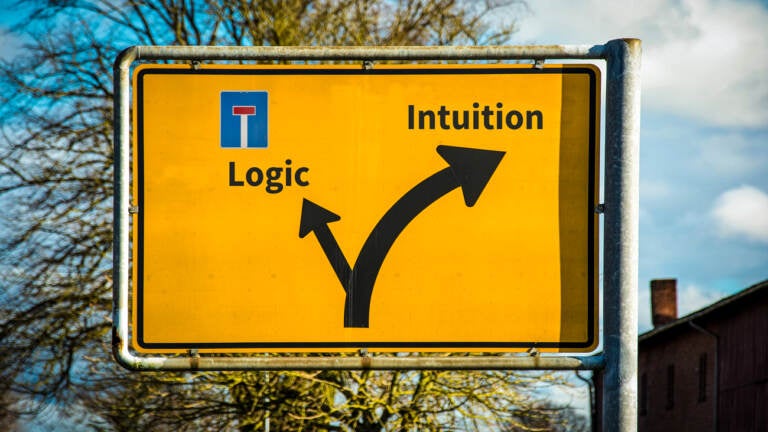When to Trust Your Intuition
Listen 49:12
(Pixelvario/Big Stock)
It’s when a dark alleyway makes the hairs stand up on the back of our neck; when a mother just knows that something’s wrong with her kid; when you meet someone, and can tell they’ll either be your best friend — or your worst nightmare.
On the surface, intuition can seem a bit like magic — this unexplainable knowledge that pops in our heads, based on nothing but a feeling. But scientists say there’s more to intuition than just gut instinct. It’s about how our brains use years of accrued information to make predictions about what’s going to happen next — all on a subconscious level. But if we don’t know exactly how intuition works, how can we trust it — and should we trust it?
On this episode, we explore intuition — what it is, how we can harness it, and when to avoid it. We hear stories about the edge that human doctors have over AI, one woman’s incredible feat of motherly intuition, and why some people call intuitive eating the antidote to diet culture.
Also heard on this week’s episode:
- We talk with David Jaison, who offers us a peek behind the curtain of “mentalism” — a kind of performance art that uses a mix of psychology, showmanship, and intuition to surprise audiences.
- Neuroscientist Joel Pearson breaks down the emerging science behind intuition — where it comes from, how it works, and when we should (and shouldn’t) trust our gut feelings. Pearson is the founder and director of Future Minds Lab at the University of New South Wales in Sydney.
- Artificial intelligence may not have the best bedside manner, but it’s getting better and better at diagnosing and treating patients. So what does that mean for traditional MDs? Reporter Jad Sleiman explores the edge that human doctors have over AI — at least for now.
- When Katie Pratt was 3 years old, she was diagnosed with a Chiari malformation, a rare condition in which the cerebellum bulges through an opening in the skull into the spinal canal. Katie’s mom, Wendy, had a hunch about what the solution would be — but it wasn’t until doctors opened up Katie’s skull that they discovered she was right. Katie interviews her mom about the experience, and her incredible flash of mother’s intuition.
- You might’ve heard of intuitive eating, a practice that proponents are calling an antidote to both diet culture and disordered eating. Reporter Liz Tung talks with Elyse Resch, one of the founders of intuitive eating, and one young woman about how intuitive eating changed her relationship with food.
WHYY is your source for fact-based, in-depth journalism and information. As a nonprofit organization, we rely on financial support from readers like you. Please give today.






